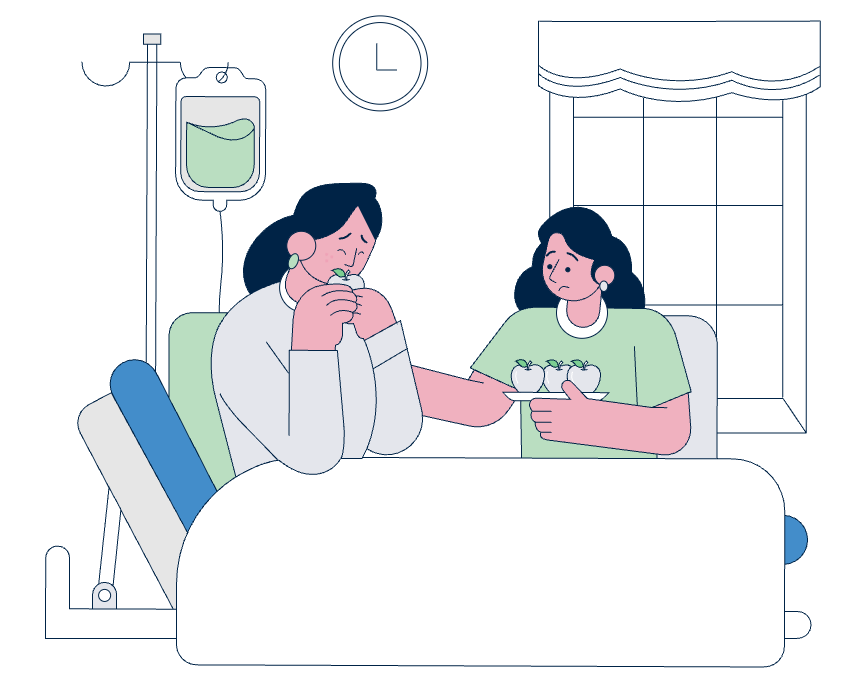“Guilt is one of those emotions that feeds on itself. With every bite it gets a little heavier.”
- Robert Dunn
Over the last couple of weeks, we’ve been talking about coping with loss and about checking our social support to see if it is genuinely supportive. As we discussed, some of the steps to healing are both naming your feelings and feeling those feelings. You likely noticed through that exercise that loss brings forth a variety of emotions. It is not uncommon for one of those emotions to be guilt, particularly if we were directly involved in the situation in which the loss occurred.
I want to emphasize here my belief that guilt is not a bad thing. Adaptive guilt shows us where we have gone wrong and pushes us towards future choices and behaviors that are more aligned with our values. Feeling guilty may give us the impetus we need to fix our mistakes.
As Brene Brown says: “I’m just going to say it: I’m pro-guilt. Guilt is good. Guilt helps us stay on track because it’s about our behavior. It occurs when we compare something we’ve done – or failed to do – with our personal values.”
But guilt can become maladaptive when it is excessive or unshakeable. In those circumstances I invite you to try one of these strategies:
1) Gently challenge your guilt. Did you truly do something wrong, either through action or failure to act? Is it only with hindsight that you can see this error or was it apparent beforehand?
When feeling guilty, we tend to believe that if we had acted differently, the outcome would have been better. Rarely do we consider that acting differently might have led to something even worse. If we examine this, we can see the fallacy. We only know what happened. We don’t know, and will never know, what might have happened under other circumstances.
2) Get specific. You may be able to distinguish between unhelpful self-criticism (and perhaps unhelpful criticism from others) with the word “more.”
Thinking “I should have done more” can induce unwarranted guilt. In that “more” may lie the belief that there was more to do (and we’ve already discussed the pitfalls of the word “should”).
In any case, the lack of specificity can make this an unhelpful thought.
In order to allow guilt to be a guide and not a burden, consider what exactly you might have done differently. This allows you to make alternative choices in the future, whereas the amorphous “more” can leave you feeling stuck.
3) Practice self-compassion. You will not be a less effective physician if you forgive yourself for your mistakes.
In fact, research actually shows that physicians who are self-compassionate display more empathy towards patients than do physicians who are less self-compassionate. They also have lower levels of burnout, fewer symptoms of depression and anxiety, and lower levels of stress. There is nothing about self-compassion that is detrimental to performance.
There are a number of practices that can help you exercise self-compassion. We’ll review the powerful example of considering how you would treat a friend or loved one.
Imagine that someone to whom you are close came to you with an account of having done what you did. They are eaten up with guilt about it.
How would you respond?
If you struggle with being that hypothetical, use your memory and not your imagination.
Think about times when people close to you have made mistakes or been down on themselves. How have you responded to them? Think about what you said, what you did, and the tone of voice you used in your interactions.
Next, think about your response to yourself when you are feeling guilty. Think again about what you say, what you do, and the tone you use in speaking to yourself. It can be very helpful to write this down instead of just thinking about it so I encourage you to do that if possible.
Are there differences between the ways you respond to your loved ones and the ways you respond to yourself?
What might happen if you responded to yourself the way you respond to a friend who is feeling guilty? What if you showed the same empathy and compassion for your own shortcomings as you are able to do for others that you love?
As you work to be more self-compassionate, remember that you did not develop your patterns overnight. There is nothing wrong or bad about you for feeling maladaptive guilt; it’s a normal human experience. There is no reason to feel guilty about feeling guilty..
And a gentle reminder here that all the guilt in the world will not change the past. It’s okay to move forward; in fact, that’s the only way you can go.
4) Understand that guilt may be self-protective. Yes. You may be feeling guilty because your mind is trying to protect you.
But this guilt feels awful, you might be thinking. It’s gnawing and nauseating, always waiting to attack in unexpected moments. It’s a horrible feeling. Why would feeling guilt be protective?
Sometimes feelings of guilt are protective because they keep us from feeling powerless. If I am guilty, that means I did something wrong. And if I did something wrong, that means I can do something different next time and can get a different outcome.
These feelings tell us that the universe is not one in which tragic outcomes occur outside of human control. The feelings may be trying to shield us from the realization that we can do absolutely everything right and still face loss.
Guilt is a normal, and often adaptive, human emotion. If you are burdened by excessive or persistent guilt, I hope these practices will help lessen that burden for you.

Leave a Reply